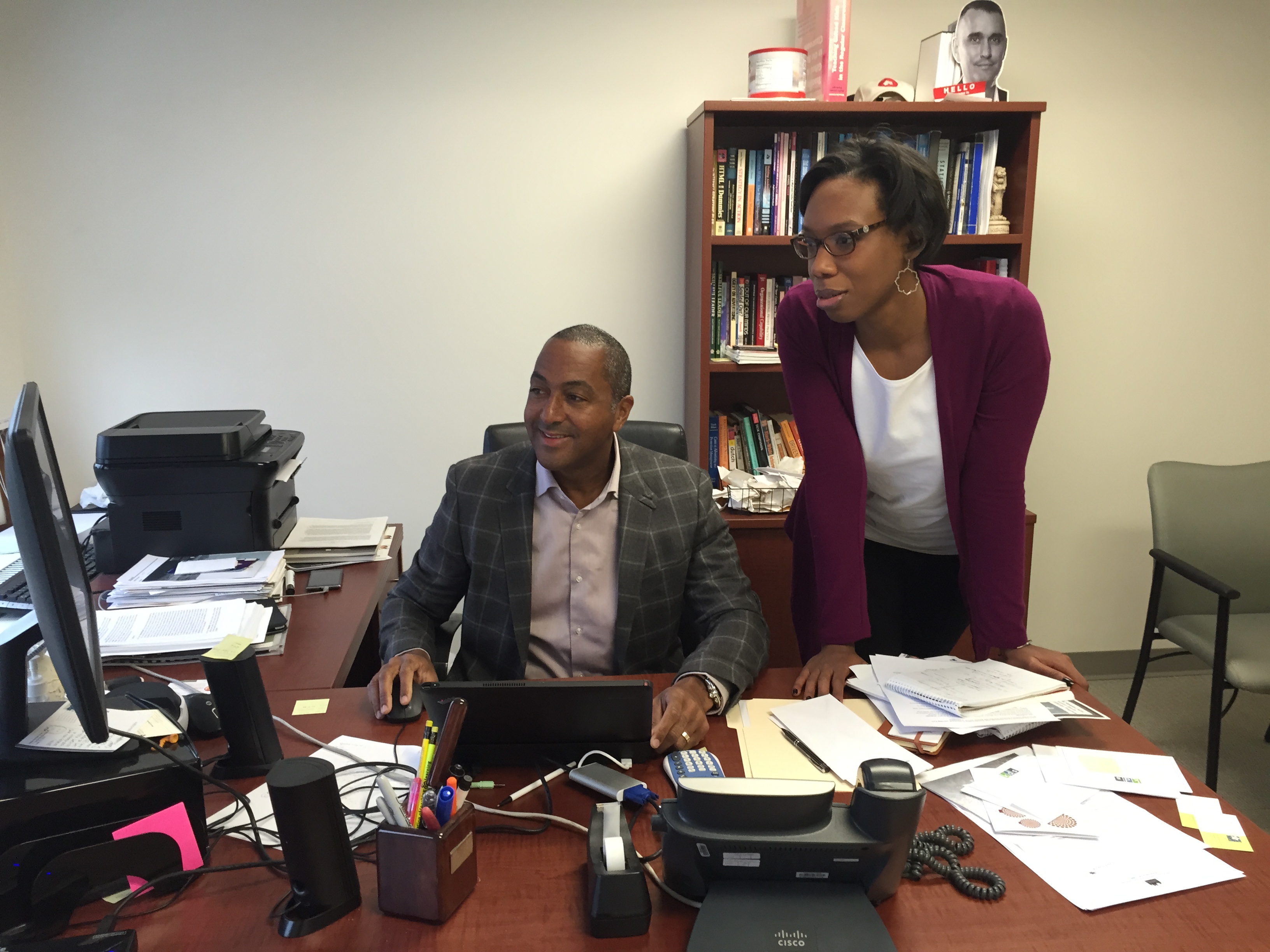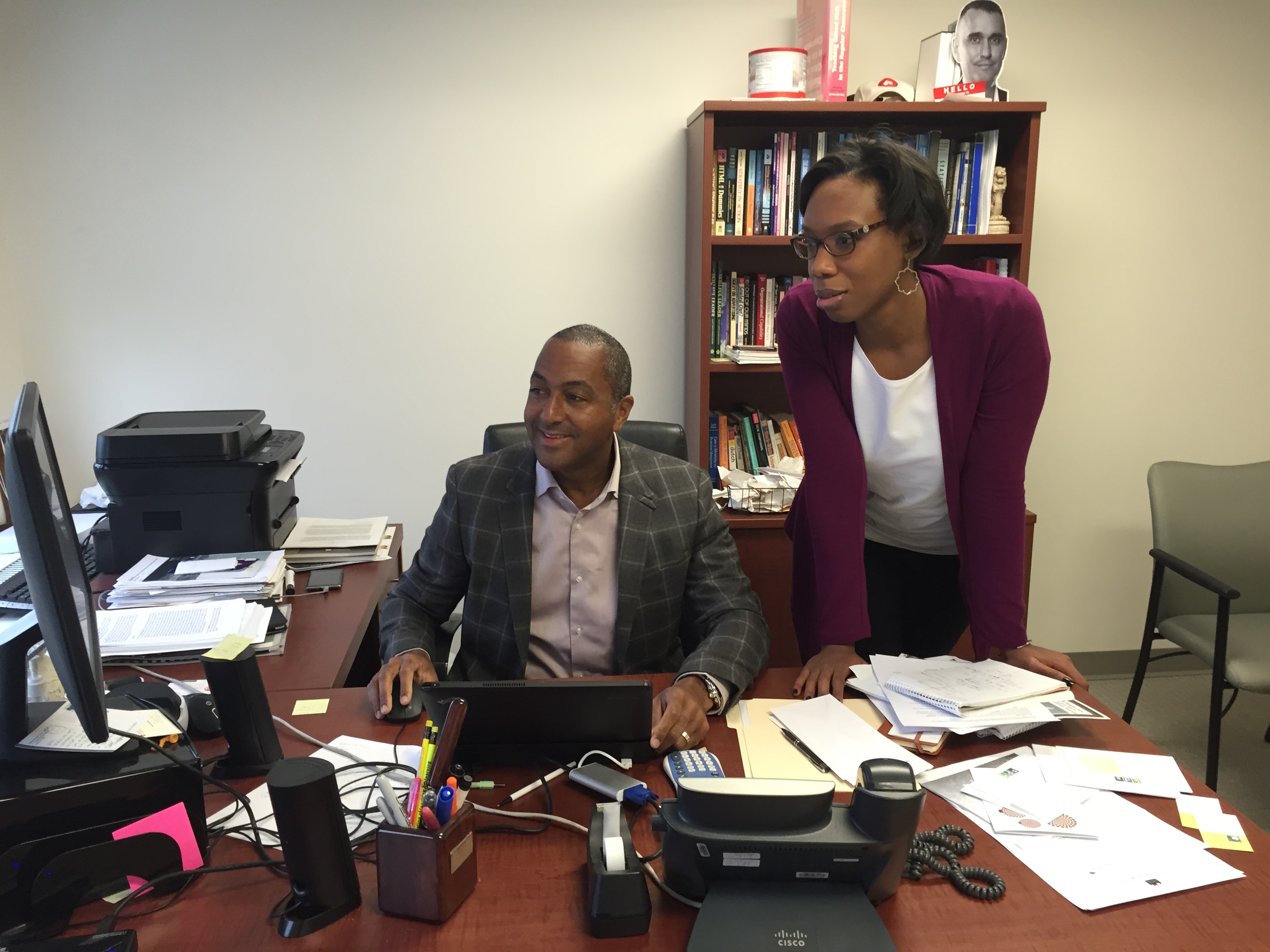Knowledge Delivery Systems helps teachers help kids
Sponsor content from HP

A free daily email with the biggest news stories of the day – and the best features from TheWeek.com
You are now subscribed
Your newsletter sign-up was successful

In 2009, Knowledge Delivery Systems was looking for a way to expand its professional development business. The company had been successful in signing up individual teachers for its online seminars, but it hadn't been able to reach a bigger market.
When Alvin Crawford took over as chief executive officer that year, the company made the shift from a retail-based business model to one that focused on landing bigger fish as clients.
"In the past five years, all of our growth has come from working with school districts and states," said Crawford, noting that KDS made the jump with its relatively small staff of just a few dozen people. "We still work with individual teachers looking to improve their skills, but we've scaled up our operation."
The Week
Escape your echo chamber. Get the facts behind the news, plus analysis from multiple perspectives.

Sign up for The Week's Free Newsletters
From our morning news briefing to a weekly Good News Newsletter, get the best of The Week delivered directly to your inbox.
From our morning news briefing to a weekly Good News Newsletter, get the best of The Week delivered directly to your inbox.
That change — plus a laser-like focus on upgrading both its technology and its content — has helped KDS increase its revenue. The company has been expanding — posting 143 percent growth between 2010 and 2013 — despite the 2008 recession, which forced school districts to make deep cuts to their services and resulted in massive teacher layoffs across the country.
But, that's not the only challenge KDS has faced. While local, state and federal governments have budgets for professional teacher development, they are often segmented. That makes it difficult for bigger entities to fund large-scale training programs.
And, it's been a tough sell to get people focused on teacher development as opposed to accountability. Thanks to No Child Left Behind, the education establishment has concentrated on creating tests to measure performance without a corresponding emphasis on helping teachers improve their methods. That imbalance seems to be changing, albeit slowly.
Yet, KDS has found a way to keep moving forward.
A free daily email with the biggest news stories of the day – and the best features from TheWeek.com
In the next five years, the company is expecting to add 20 to 30 large school districts — a multimillion-dollar proposition — as clients. As the country's education system moves towards making college and career readiness the goal for school districts, KDS's mix of online programs will afford these educators a chance to get the training they need to teach to the new standards on their own schedule. The course catalogue is diverse, offering symposia on everything from dealing with cyberbullying to supporting struggling students to teaching writing.
"Our value proposition is that you can spend less per teacher and have more impact," said Crawford. "It's an efficiency story."
How does KDS measure success? Crawford, of course, cites its growing number of subscribers. But, he also adds another measure to the equation.
"We have a double bottom line," he said. "Teachers are in the business of helping kids, and we are in the business of helping teachers."
-
 Political cartoons for February 16
Political cartoons for February 16Cartoons Monday’s political cartoons include President's Day, a valentine from the Epstein files, and more
-
 Regent Hong Kong: a tranquil haven with a prime waterfront spot
Regent Hong Kong: a tranquil haven with a prime waterfront spotThe Week Recommends The trendy hotel recently underwent an extensive two-year revamp
-
 The problem with diagnosing profound autism
The problem with diagnosing profound autismThe Explainer Experts are reconsidering the idea of autism as a spectrum, which could impact diagnoses and policy making for the condition
-
 Epstein files topple law CEO, roil UK government
Epstein files topple law CEO, roil UK governmentSpeed Read Peter Mandelson, Britain’s former ambassador to the US, is caught up in the scandal
-
 Iran and US prepare to meet after skirmishes
Iran and US prepare to meet after skirmishesSpeed Read The incident comes amid heightened tensions in the Middle East
-
 Israel retrieves final hostage’s body from Gaza
Israel retrieves final hostage’s body from GazaSpeed Read The 24-year-old police officer was killed during the initial Hamas attack
-
 China’s Xi targets top general in growing purge
China’s Xi targets top general in growing purgeSpeed Read Zhang Youxia is being investigated over ‘grave violations’ of the law
-
 Panama and Canada are negotiating over a crucial copper mine
Panama and Canada are negotiating over a crucial copper mineIn the Spotlight Panama is set to make a final decision on the mine this summer
-
 Why Greenland’s natural resources are nearly impossible to mine
Why Greenland’s natural resources are nearly impossible to mineThe Explainer The country’s natural landscape makes the task extremely difficult
-
 Iran cuts internet as protests escalate
Iran cuts internet as protests escalateSpeed Reada Government buildings across the country have been set on fire
-
 US nabs ‘shadow’ tanker claimed by Russia
US nabs ‘shadow’ tanker claimed by RussiaSpeed Read The ship was one of two vessels seized by the US military